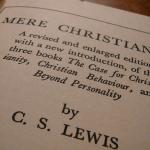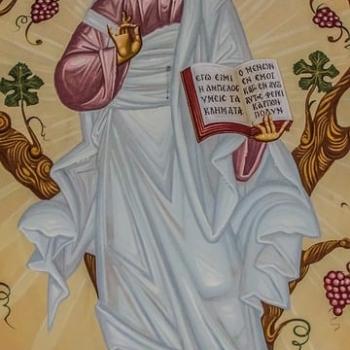
If it is true that theology is the study of the nature of God, that study must also include the nature of the relationship between God and human beings. Open Theism is a school of thought within Christian theology that seeks to explain the effect that human free will has on our interactions with God.
In this essay, I will examine Open Theism and review the history of this unique theological perspective. Finally, I will explore whether Open Theism is compatible with Catholicism.
One of the most compelling and daunting questions in theology and philosophy is the relationship between God’s omniscience and human free will. Succinctly formulated, how do we reconcile an all-knowing God with the human capacity to act freely? If God knows what humans will do, can human beings be said to enjoy free will?
Occasionally referred to as openness theology or free will theism, Open Theism seeks to address the free will paradox by positing that human free will affects or influences the manner in which God governs the universe.
Open Theism is nascent within the long history of theology and philosophy, appearing within evangelical circles during the 1980s. It became prominent following the publishing of “The Openness of God: A Biblical Challenge to the Traditional Understanding of God,” authored by Clark Pinnock, Richard Rice, John Sanders, William Hasker, and David Basinger.
The fundamental belief of Open Theism is that human beings are intended to be in a cooperative relationship with God. In this sense, it does not differ significantly from Catholic theology. However, Open Theism goes further by claiming that human beings make decisions that can affect the future in ways unforeseen by God. Owing to this claim, Open Theism argues that God does not maintain detailed control of the universe. Furthermore, since God is limited from knowing certain contingent truths, He cannot be said to possess complete knowledge of the future.
Not surprisingly, the consequences of Open Theism on theology and philosophy are significant. To understand the effects of Open Theism, it is necessary to briefly explain the two fundamental theories of human freedom.
While complex, it is possible to categorize human freedom theories into two camps. The first is free will or libertarianism. This account of human freedom argues that unless one is genuinely able to do otherwise than one does, one is not free. Therefore, we can define free will as the capacity of an agent to act or not to act free from coercion.
The concept of coercion can be extended to include a thing’s nature. For example, if one’s character is formed in such a way that one will inevitably act in a particular way, and if one has no control over one’s character, then one is not free since one cannot act in a manner other than one does.
The second theory of human freedom is called determinism. Determinism is the de facto theory of secularism and atheism. Put simply, determinism claims that every effect is produced by necessary causes so that nothing occurs due to free will, whether Divine or human. In a sense, determinism is a species of pantheism with the belief that the universe exists necessarily and that every event is simply the result of natural causes.
One can readily see that free will is essential to Christianity and morality. After all, one can not freely choose to worship if one is not free to choose. Moreover, it is the capacity for free will that makes morality possible. If humans do not have free will, they cannot be held accountable for any moral judgments since they cannot act in any other way.
As is the case with Christian theology in general, Open Theism accepts a free-will view of human freedom. However, Open Theism’s concept of free will differs drastically from Saint Augustine’s and Saint Aquinas’s teachings, which inform much of Catholic teaching on free will.
Open Theists assert that God’s omniscience is limited to what can be known. Said differently, Open Theism asserts that certain truths may occur in the future to which God’s knowledge does not extend. Additionally – according to Open Theism – there are contingent truths that no one, including God, can know. Contingent truths are those things that are true but, under different circumstances, could have been false. An example (not a good one) is that as I am writing this, it is sunny. While that is true, it could easily be raining.
While Open Theism and Catholicism admit the existence of free will in both the human and Divine natures, they differ drastically and irreconcilably concerning God’s omniscience and omnipotence. As stated above, Open Theism seeks to solve the free will paradox by limiting God’s knowledge. Such a position appears in direct contradiction to Scripture and to the teaching of the Church. I will touch briefly on two ways Catholicism conflicts with the views of Open Theism.
As is often the case, Catholicism takes a both/and approach to free will and God’s omniscience. In following Saint Augustine, free will is founded on God’s grace. Man’s nature is so construed (by God’s grace) that it possesses a free will capable of cooperating with that grace. Grace makes us capable of understanding God’s moral precepts, such as the Ten Commandments and the Sermon on the Mount.
The second way Catholicism differs from Open Theism is in its understanding of free will in relation to God’s knowledge. It must be asserted that God exists not in time but in eternity. Or, perhaps more accurately, God is not limited by time. Of course, the same cannot be said of human beings whose free will actions occur in history.
Ultimately, it is the necessity of God’s omniscience that makes Open Theism incompatible with Catholicism. As was stated above, Open Theism claims that God cannot know certain truths. However, any attempt to limit God’s knowledge is derived from a misunderstanding of eternity.
In following Thomas Aquinas and the Roman philosopher Boethius, the Catholic solution to the problem that Open Theism seeks to address lies in the fact that God, from eternity, “sees” all of history simultaneously. For this reason, it can be said that God is omniscient. At the same time, human free will occurs in time and history. This allows for human free will to remain intact while at the same time maintaining God’s omniscience.
In conclusion, the problem of human free will and God’s omniscience is not solved by limiting God but by understanding that human free will exists within the greater scope of an eternal God and the grace that He bestows upon us.













